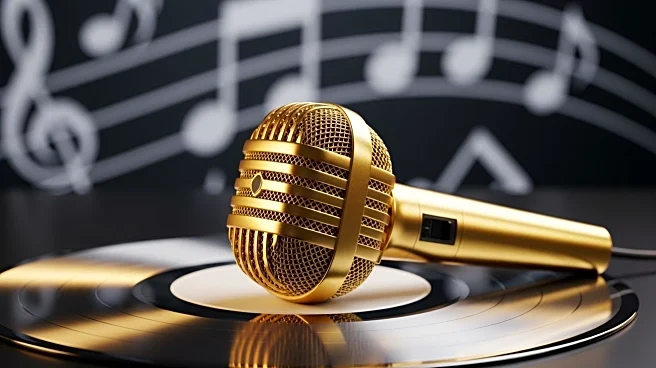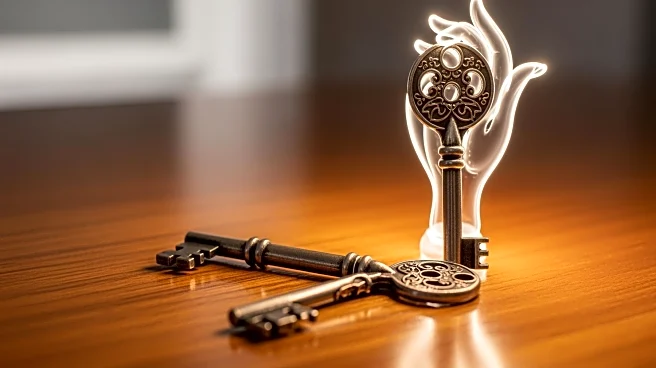What's Happening?
Taylor Swift's recent comment, 'The fans are unbelievable,' made during an October 7, 2025 interview with Zane Lowe, has sparked widespread debate. The remark followed the release of her latest album,
which achieved a record-breaking 4.002 million first-week units. The comment, initially perceived as a casual remark, has been replayed extensively across social media, amplifying its impact. Critics have flagged the tone as potentially dismissive, while fans have rallied in defense of Swift, highlighting the polarized reactions. The comment has become a focal point in discussions about the cultural significance of Swift's new era, as her stature turns even a throwaway line into headline news.
Why It's Important?
The significance of Swift's comment lies in its timing and the cultural momentum surrounding her album release. With unprecedented commercial benchmarks set in sales and streaming, the remark has intensified discussions about fan culture and celebrity influence. The polarized reactions underscore the power of soundbite culture in shaping public opinion and the narrative around high-profile figures. Swift's comment has become a cultural signal, reflecting broader societal dynamics where celebrity statements can provoke both support and criticism. The ongoing debate highlights the complexities of fandom and the impact of celebrity discourse on public perception.
What's Next?
As the album continues to perform strongly, the debate over Swift's comment is expected to persist. Social media threads, think pieces, and memes will likely keep the story alive, with public opinion remaining divided. The commercial success of the album suggests that the immediate impact on Swift's career may be minimal, but the long-term implications for her narrative and relationship with fans remain uncertain. Observers will be watching to see if this moment reshapes Swift's legacy or fades as a passing flash in her career.
Beyond the Headlines
The deeper implications of Swift's comment touch on the ethical dimensions of celebrity influence and the role of media in amplifying cultural signals. The debate raises questions about the responsibility of public figures in managing their statements and the potential consequences of offhand remarks. It also highlights the evolving nature of fandom, where digital platforms can rapidly transform casual comments into significant cultural moments. This incident may prompt discussions about the balance between artistic expression and public accountability in the age of social media.









